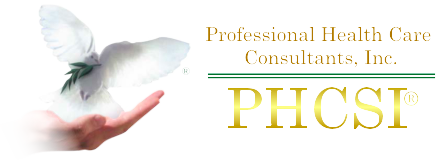Fore more inquiries, please call
- 888-534-8082 / 714-554-0878 / 949-681-8383
Fore more inquiries, please call
 Insomnia, sleeplessness, or sleep deprivation is a sleep disorder commonly connected to a medical side effect or psychiatric illness. It can either be having the difficulty of falling asleep or staying asleep or getting non-restorative sleep.
Insomnia, sleeplessness, or sleep deprivation is a sleep disorder commonly connected to a medical side effect or psychiatric illness. It can either be having the difficulty of falling asleep or staying asleep or getting non-restorative sleep.
Though anyone can have insomnia, this disease is more common among older people. Our sleeping pattern changes as we grow up. Our body produces lower levels of growth hormones which is related to a decrease in deep sleep states (slow wave). When we sleep, our body produces melatonin and the less we make regenerative sleep the less we produce melatonin. Melatonin is a hormone that controls our sleep and wake cycles produced by the pineal gland. Our natural melatonin levels drops as we age resulting to intermittent sleep (rapid sleep cycles). At the same time our circadian rhythm (our internal body clock) changes too thus the random sleep schedules. Our circadian clock is believed to be 25.25 hours and this diminishes as we grow older.
Men lose more hours of deep sleep than women. Reciprocally, men tend to suffer daytime sleepiness in the process. Young and middle-aged people complain more of problems falling asleep while older adults suffer more of noctural awakenings (early morning awakening) and non-refreshed sleep.
Sleep is essential for everyone for it is the chance that our body takes some rest and gives time for our cells to heal themselves and regenerate. A good night’s sleep improves our bodily functions, promotes concentration, and refreshes our immune system that helps prevent disease.
The most common causes of insomnia among seniors may be correlated with the following:
While here are the common symptoms that you or someone in your family is already dealing with sleeplessness:
 Most adults require about 7 and a half to 9 hours of sleep (per night) to perform at their best the next day. Though some older people may think that they may have slept less for the night but the real indication of lack of sleep is the feeling of tiredness during the day. This has to be addressed as soon as possible so it would not result in health problems and probable dangers for the elderly.
Most adults require about 7 and a half to 9 hours of sleep (per night) to perform at their best the next day. Though some older people may think that they may have slept less for the night but the real indication of lack of sleep is the feeling of tiredness during the day. This has to be addressed as soon as possible so it would not result in health problems and probable dangers for the elderly.
Sleeping pills may help the seniors in regulating their sleep patterns but considering exercise, good diet and a relaxed mind can be great alternative solutions than just taking medicinal cure.
sources: http://www.helpguide.org/life/sleep_aging.htm, http://en.wikipedia.org/wiki/Insomnia, http://www.webmd.com/sleep-disorders/tc/melatonin-overview, http://www.sleepdex.org/seniors.htm

Professional Health Care Consultants, Inc., also known as Professional Health Care Services, is a family-owned caregiver referral and consulting business. We specialize in managing and developing small businesses in the Home-Care Industry for non-medical, custodial and around-the-clock care. We offer caregivers, families and their loved ones all different services and several options that are affordable for them.
PHCSI and “Your Loved Ones are Our Loved Ones” are Registered Trademarks assigned to Professional Health Care Consultants, Inc.
COPYRIGHTS © 2020 Professional Health Care Services. All Rights Reserved.